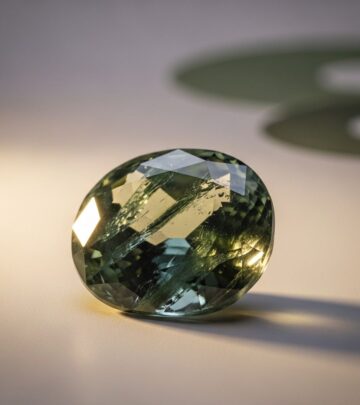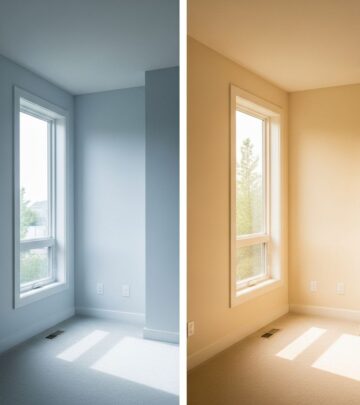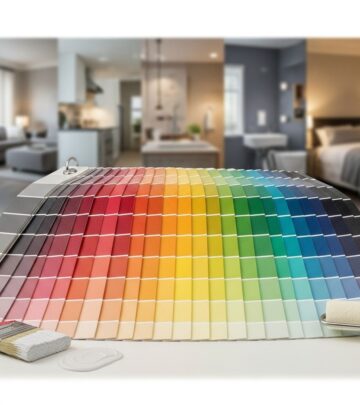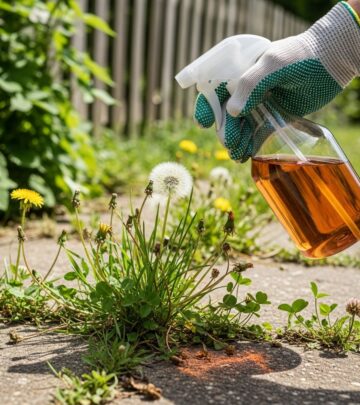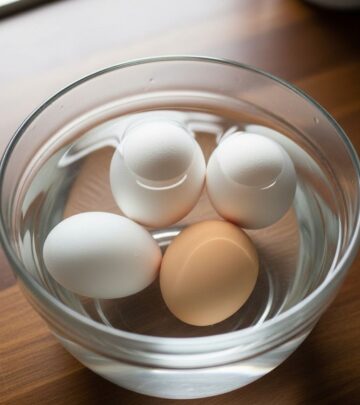How to Do Laundry With Hard Water for Cleaner, Softer Clothes
Prevent rough fibers and faded hues with simple fixes that restore fabric feel and color.
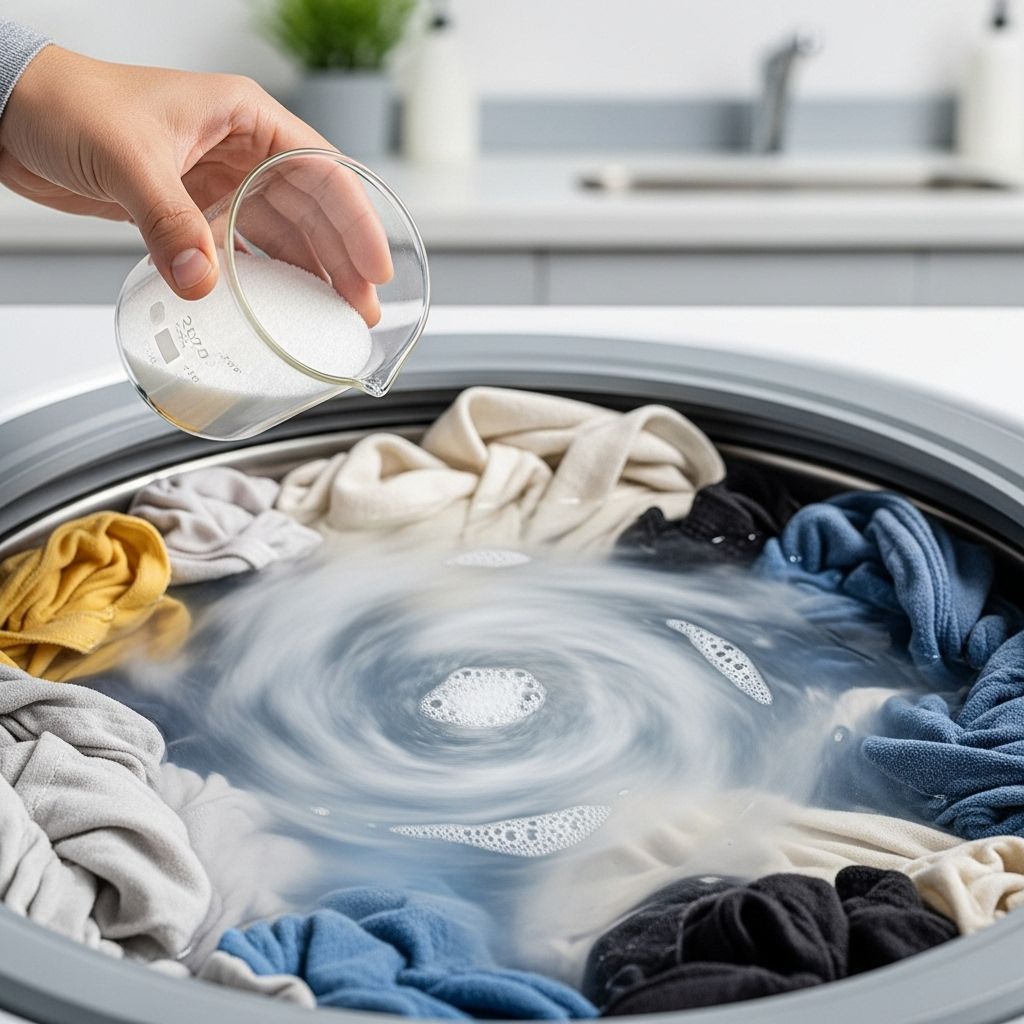
Hard water can present a host of problems when it comes to washing your clothes. If you find your favorite garments feel rough, look dull, or never seem truly clean, hard water may be the culprit. Understanding its effects and learning the best laundry practices can help you not only extend the life of your clothing and linens but also experience noticeably improved results from every wash.
What Is Hard Water?
Hard water is water that contains high levels of dissolved minerals, primarily calcium and magnesium. These minerals enter the water as it travels through soil and rock before reaching your pipes.
- Hardness is typically measured in grains per gallon (GPG) or parts per million (PPM).
- While not harmful to health, hard water causes difficulties in cleaning processes, including laundry, due to mineral buildup.
How to Determine If You Have Hard Water
- Clothes feel stiff or scratchy after washing.
- White fabrics appear dingy or yellowish.
- Soap scum forms in the washer or on fabrics.
- Mineral deposits (white or grayish residue) on faucets and showerheads.
- Glassware has spots after dishwashing.
- Increased need for detergent yet decreased cleaning effectiveness.
Simple test kits are available at hardware stores to check your home’s water hardness level. Water suppliers may also provide this information upon request.
The Impact of Hard Water on Laundry
1. Residue and Soap Scum
The minerals in hard water bind with soap and detergent to form a sticky film known as soap scum. This residue clings to fabrics, making clothes feel unclean even after a wash cycle. You may also see this film inside your washer drum and detergent tray.
2. Stiff, Scratchy, and Discolored Fabrics
Frequent washes in hard water cause minerals to accumulate in fabrics. Over time, this leads to:
- Stiff, uncomfortable clothing and towels
- Clothes that look faded, gray, or yellowed
- Increased wear and breakdown of fibers, shortening garment lifespan by up to 15%
3. Reduced Detergent Effectiveness
Minerals in hard water attach to the cleaning agents in detergent, preventing them from fully activating. As a result, you may notice:
- Need for up to 30% more detergent to achieve comparable cleanliness
- Persistent stains and lingering odors even after washing
- Higher risk of fabric irritation for those with sensitive skin, eczema, or allergies due to residue build-up
4. Damage to Washing Machines
Hard water leaves mineral deposits inside your washing machine, including hoses, pumps, and drums. This buildup can:
- Shorten the lifespan of your machine
- Reduce energy efficiency
- Require more frequent repairs or cleaning
How to Wash Laundry With Hard Water: Essential Tips
Hard water problems are widespread, but proven strategies can help ensure your laundry comes out cleaner and softer every time.
1. Use More Detergent
- Increase your detergent use by about 25–30% over the manufacturer’s recommendation. This extra amount helps counteract mineral interference and cleans more effectively.
- Refer to your detergent label and adjust according to your water hardness test or supplier’s assessment.
2. Choose the Right Detergent
- Opt for liquid detergents: Liquids dissolve more easily in hard water, allowing cleaning agents to work more effectively.
- Look for detergents formulated for hard water: Many top brands offer versions containing water softening agents, like sodium citrates or washing soda, that bind minerals and prevent residue.
- Check for enzyme boosters: Enzymes help break down organic stains (like sweat and oils) that hard water minerals can make harder to remove.
Best Laundry Detergents for Hard Water
| Brand | Type | Key Features |
|---|---|---|
| Tide | Liquid/Pods | High performance, works well in hard water, contains water softeners |
| Persil ProClean | Liquid | Formulated with strong enzymes for mineral-laden water |
| Arm & Hammer Plus OxiClean | Liquid | Contains washing soda, good for breaking up mineral buildup |
| Specialty Hard Water Detergents | Powder/Tablets | May include extra chelating agents for stubborn minerals |
3. Rinse Effectively
- Use an extra rinse cycle to help wash away more mineral residue and detergent.
- Avoid overloading the washer so water and detergent can circulate freely.
4. Add a Water Softener
- Install a whole-house or laundry-specific water softener: Water softeners use salt or other methods to remove calcium and magnesium ions, transforming hard water into soft water.
- Products like laundry boosters (powdered water softeners) can be added directly into each wash to prevent mineral buildup.
5. Natural Laundry Boosters
- White vinegar: Add 1/2 to 1 cup to the rinse cycle to dissolve minerals, soften fabrics, and help break up residue.
- Baking soda: Use 1/2 to 1 cup per load in the drum to help soften water and improve cleaning power.
- Do not mix vinegar and baking soda in the same cycle, as they neutralize each other’s effects.
6. Prevent and Remove Stains
- Use an enzyme-based stain remover before washing.
- Do not let stains set; treat as soon as possible for best results.
Long-Term Strategies for Hard Water Laundry Care
Persistent hard water issues may require more permanent solutions:
- Install a whole-home water softener system. This is expensive but provides softer water for all household uses, including laundry.
- Regularly clean the washing machine’s drum and detergent dispenser to remove scale and residue using a descaler or vinegar cycle (once per month).
- Check washing machine hoses and filters for buildup and replace or clean as needed.
Fabric-Specific Hard Water Tips
- Towels: Wash with hot water, add vinegar to the rinse, and avoid fabric softeners that can compound residue buildup.
- Whites: Use optical brighteners or specialty detergents and a booster like baking soda or borax.
- Delicates: Choose gentle, liquid detergents and use a water softening booster.
- Dark Colors: Use cold or warm water and consider a final rinse with vinegar to prevent mineral stains and color fading.
Table: Quick Reference — Hard Water Laundry Solutions
| Problem | Solution |
|---|---|
| Stiff fabrics | Add vinegar to rinse; use liquid, high-performance detergents |
| Soap scum on clothes | Use more detergent; extra rinse; laundry boosters |
| Dull whites | Baking soda or borax boost; optical brighteners |
| Mildew or odors | Vinegar rinse; enzyme detergents |
| Residue on washer | Monthly vinegar cycle or descaler |
Frequently Asked Questions
Q: What are the signs my laundry problems are caused by hard water?
A: Key indicators include stiff, rough clothing, white clothes turning gray or yellow, persistent residue, soap scum in the washer, and increased detergent use with limited cleaning results.
Q: Does vinegar really work for softening hard water in laundry?
A: Yes, adding 1/2 to 1 cup of distilled white vinegar to the rinse cycle can help dissolve minerals, break up soap scum, and soften fabrics. It is safe and effective for most loads. Avoid combining with bleach.
Q: Are some laundry detergents better for hard water than others?
A: Definitely. Liquid detergents, those with added water softeners (like sodium citrate or washing soda), and enzyme-rich blends work best. Specialty hard water detergents provide superior results.
Q: Will a water softener system eliminate hard water laundry problems?
A: Yes, a whole-home or laundry-specific water softener removes minerals before the water reaches your washer, effectively resolving stiffness, residue, and other related concerns for all household water uses.
Q: How often should I clean my washing machine if I have hard water?
A: Clean your washing machine’s drum and detergent tray monthly with either a commercial descaling solution or a hot cycle with two cups of white vinegar to prevent buildup and extend appliance life.
Key Takeaways for Laundry Success in Hard Water Areas
- Measure your water hardness and tailor your detergent amount accordingly.
- Choose specially formulated liquid detergents, and consider adding laundry boosters like baking soda or white vinegar.
- Use an extra rinse cycle to remove minerals and residue.
- For ongoing issues, investigate a household water softener system.
- Regularly maintain your washing machine to prevent scale and extend its useful life.
With the right strategies, you can enjoy softer, cleaner, and longer-lasting clothes—and protect your appliances from hard water’s damaging effects.
References
- https://www.mieleusa.com/c/laundry-tips-how-water-hardness-affects-laundry-7299.htm
- https://www.consumerreports.org/appliances/laundry-detergents/best-laundry-detergents-for-hard-water-a9769965917/
- https://fcdrycleaners.com/blog/ultimate-guide-well-water-laundry-tips-for-cleaner-clothes/
- https://branchbasics.com/blogs/cleaning/impact-soft-hard-water-laundry
- https://sheltonswater.com/poor-water-quality-symptoms/how-to-save-your-clothes-from-hard-water/
- https://www.quality-life-solutions.com/about-us/blogs/36148-why-hard-water-ruins-your-laundry.html
- https://toxinfreeish.com/blog/solutions-for-hard-water/
Read full bio of Sneha Tete

